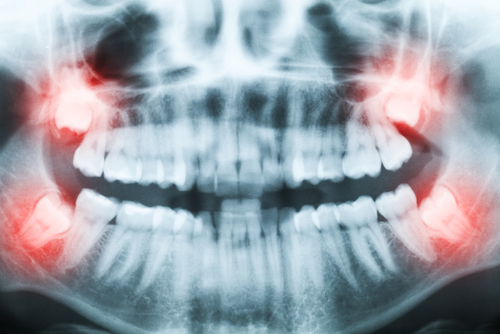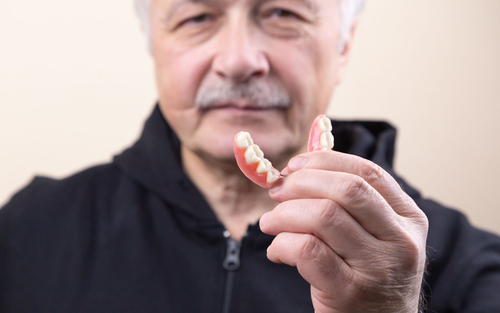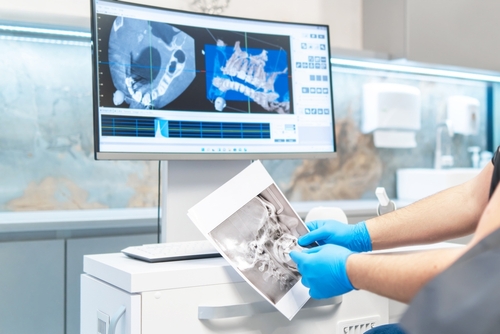What is a Dental Implant?
If you need to replace a missing tooth, you may need a dental implant. Watch the video below as Dr. David P. Ney defines what dental implants are and identifies the differences between conventional dental implants and mini dental implants.
So there’s actually two forms of actual implants. You have a smaller kind of diameter implant, which just means it’s smaller in the shape of it or you have a conventional implant which is a little bit larger. The way those go into the bone are going to be two different two different situations.
Individuals who, for instance, have lost teeth or have had teeth extracted will typically have less ridge or less bone to put an implant into typical conventional implant you’re going to have to have a certain amount of dimension to put that implant in. That dimension, what happens is, they’ve got to take away tissue to expose the actual bone. Then they place the implant into a big hole in which they have actually placed.
Then the implant is placed, the bone heals back to the implant. Huge difference between the actual mini implant which is a smaller diameter. Once again, you don’t need as wide a bone as you do for a conventional and it’s like screwing a screw into actually wood. You’re screwing the implant into the bone as-is.
The great thing about the mini implant, it’s got this little osseous surface on the implant which basically stimulates bone growth. I like to let the implants heal two to probably three months to let those things kind of integrate in the bone. Integration meaning become part of the bone, as opposed to conventionals, you’re looking at about a six month process. You’re looking at a little more healing time, certainly. And then what happens when they recover it? They have to take that tissue away. One more thing they have to do.
And then they have to take a little torque wrench, if you will, to make sure that everything is actually stabilized. If it’s not stabilized, they have to take it out and they have to put bone in and they have to heal it again. So we have limited areas where we can place so we always place at least six, possibly eight to begin with and we try to place four to five down on the bottom so as we go, as I call it upstairs but really in the maxilla, it’s going to be a softer bone.
And so it will require a little more implants. And sometimes those implants won’t integrate, and they won’t integrate for a variety of actual reasons. We don’t know what the actual reasons are quite a bit. So what you do is you take that out. But when you take it out, there’s a small hole there as opposed to the conventional implant where you have to put a whole lot of bone into it. All we do is move the implant over maybe 2mm. 2mm to lot of people doesn’t mean a lot. It’s a very small amount of actual movement. Place another hole, place another implant. Allow it to heal again. I always allow things to heal first.
To make sure that they’re going to be a successful situation for us. If you have a situation where a lot of people do, if they’re wearing a lower denture, for instance, and you’re frustrated for obvious reasons, we call those in our industry floating dentures, because they float.
I will not make a lower denture without having implants in. The implants are going to stabilize those things. We also use the soft tissue, meaning the bone that’s in the back, to also support that lower denture as well. And the upper denture.
So if you have missing teeth, if you’re frustrated with it, with how you chew, if your dentures are loose, we would encourage you very much to give us a call and come in for a free consultation in which we will take a special X ray, which will show us the sides of your bone. Not just the front of your bone, but how much bone do you really have and whether or not we can do something with that. And we can give you options financially and or model wise as to where you want to go.
Related Videos
- What is a Dental Implant?
- What is a Mini Dental Implant?
- Are Mini Dental Implants as Effective as Conventional Implants?
- What If I’m Missing a Single Tooth?
- What If I’m Missing Multiple Teeth?
- The Mini Dental Implant Procedure
- Mini Dental Implant Healing Period
- Does Getting a Dental Implant Hurt?
- Are There Age Restrictions for Mini Dental Implants?
- Who is a Good Candidate for a Mini Dental Implant?
- What If I Don’t Have Enough Bone for a Conventional Implant?
- Will I Require Bone Grafting for a Mini Dental Implant?
- How Many Appointments are Required for a Mini Dental Implant?
- How Long Do Mini Dental Implants Last?
- How Do I Care for My Mini Dental Implant(s)?
- Can I Get a New Tooth the Same Day of an Extraction?
- Can Mini Dental Implants Replace All of My Teeth?
- How Much Does a Mini Dental Implant Cost?
- Does Insurance Cover Dental Implants?
- Do You Offer Financing for Mini Dental Implants?




